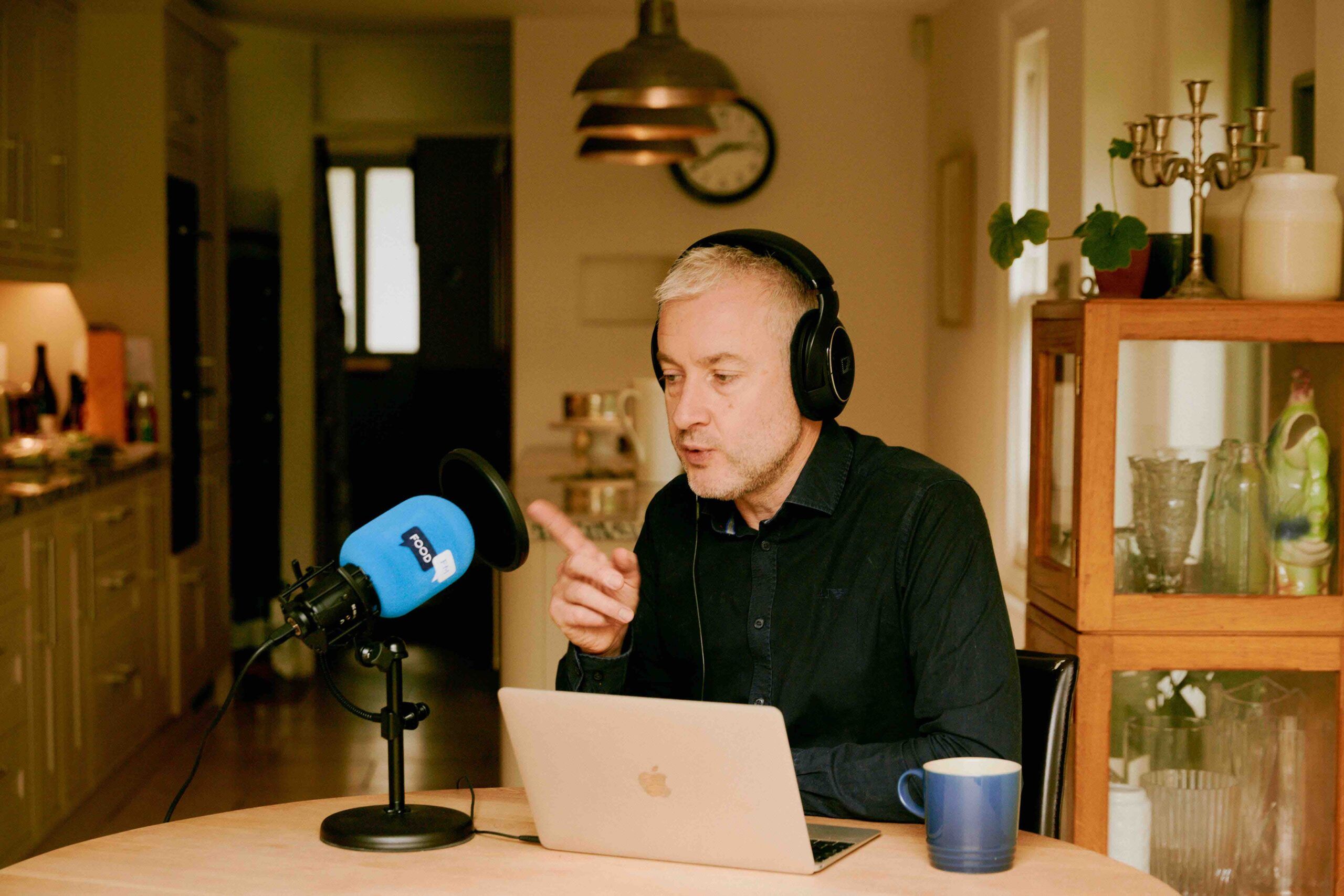When David Kermode is not writing stories for The Buyer – and other drinks trade media – he is busy finding guests for his new podcast, The Drinking Hour on Food FM. But why does he think it’s worth 60 minutes (or so) of our time…
Tell us about your background and your previous career as a national journalist and producer?
Though I started my career in local radio, on the Isle of Wight, the bulk of my ‘news career’ was in national broadcasting. I worked as a reporter for LBC and IRN, then switched to TV, initially as a producer at Sky News which, back in the 90s was a great swashbuckling place to be.
After learning the ropes, the BBC beckoned, so I joined for the launch of the News Channel, then known as BBC News 24. It was a total shambles back in the early days, thanks to malfunctioning technology that infamously led to us putting a chap who was waiting in reception for a job interview on the set for a live interview about a technology lawsuit, and accidentally introducing the US Secretary of State Madeleine Albright as ‘GI Jane’, but it was all good experience.
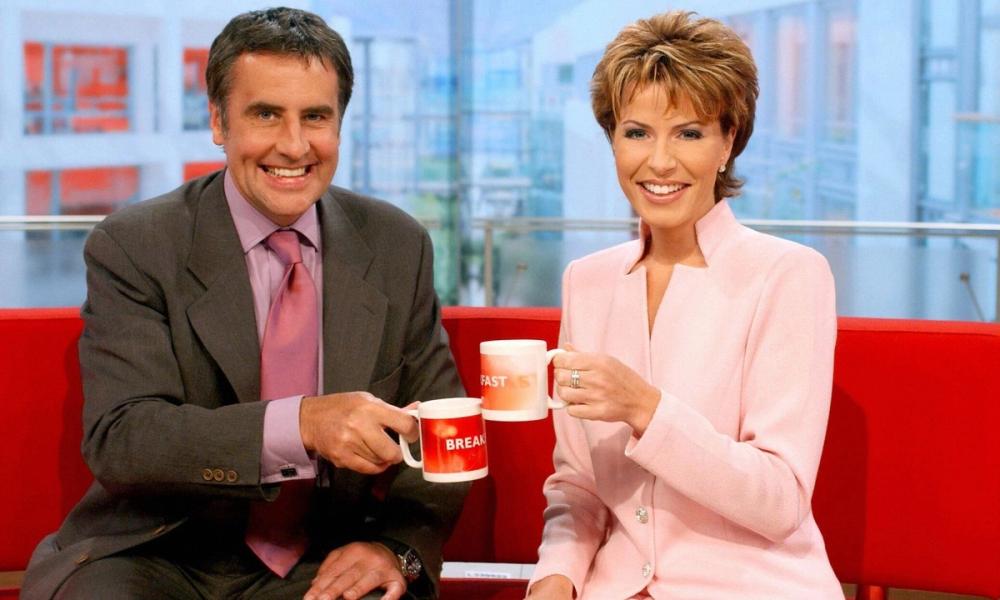
Arguably David Kermode’s most high profile – and stressful – role was editor of BBC Breakfast
After that I went on to become the editor of BBC Breakfast. It’s an all-consuming role, as the programme runs seven days a week and the 3.50 alarm calls are a killer, but it is also one of the best jobs in the world, with a huge and very engaged audience.
Then came the opportunity to relaunch Channel 5 News, taking Natasha Kaplinsky with me from the BBC.
Alongside the pioneering news bulletin, which boasted the highest production standards in the industry, we also had to produce a daily entertainment show – at one stage presented by Ian Wright and Melinda Messenger – which had its moments, including a litter of micropiglets breaking loose in the studio, with members of the girl band the Saturdays in hot pursuit.
After a brief stint at ITV, followed by a case of middle-aged burn-out, it was time for me to do something else. I thought to myself: “I am a journalist and wine is my greatest love. I wonder if I could be a wine journalist?” If it’s a mid life crisis, it’s an enjoyable one.
What lessons do you think you have taken into your new career as a drinks writer and broadcaster?
I am a populist and I have spent my life in TV making, and defending, programmes that are unashamedly populist. When you make a show your job is to think about the audience at every twist and turn. The moment you lose sight of who you’re talking to, you’re stuffed.
I like to think that I have brought that discipline to my wine and spirits communication, hopefully keeping it unpretentious, with a sense of fun.
What was it about wine and drinks that made you want to break free from national media and focus on a much more specialist subject?
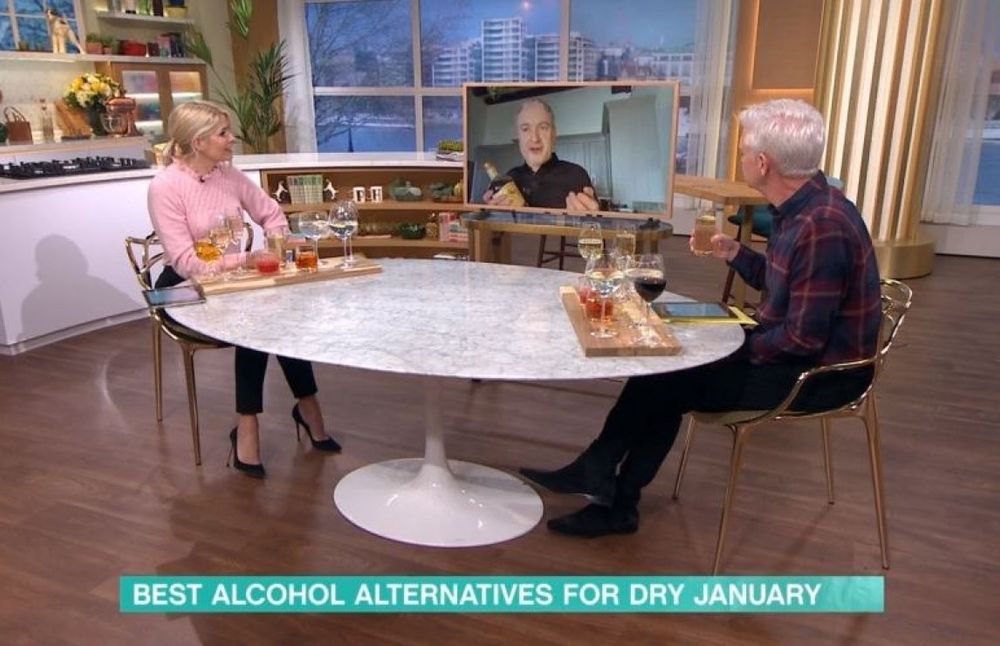
David Kermode has quickly made a name for himself in wine and spirits and is now a regular on ITV’s flagship This Morning show with Phil Schofield and Holly Willoughby
The aforementioned mid life crisis was a trigger, but I have been an avid enthusiast for booze since I was old enough to drink (and possibly a little before that time too…).
I sensed that I was getting a little stale with the ‘hardy annuals’ of news, so I needed an opportunity to hone in on a specialism that really fired me up.
How have you found writing about wine and spirits – do you not feel restricted at times about what you can cover and write about having being a national journalist?
I spent my news career as a generalist, knowing a little about a lot, so I have found a having a specialism really gratifying. I remember telling a somewhat baffled friend in the news business that I was doing the WSET two-year diploma “because I really need to know what I’m talking about”. “Well that’s never been a consideration before,” he replied. It was a joke, but he had a point.
I have found the learning curve fascinating and I still have so much to discover.
What do you see as your point of difference as a drinks journalist?
There are relatively few of us engaged in really regular broadcasting, for starters, but I think it’s hopefully about accessibility – tone of voice, use of language, enthusiasm and keeping it real and relatable.
What do you find most interesting to write and talk about in the drinks sector?
There’s so much. I love getting to know regions, subzones and, most of all, the characters. If I’m honest, the geography of wine, and the stories of those who make it interests me more than the technical elements of it, though certain winemakers will often bring the latter alive for me.
Biodynamic winemaking really fascinates me and I find the many facets of sustainability really interesting too.
You are now using your broadcasting experience to run and host your own podcast – the Drinking Hour. How did that come about?
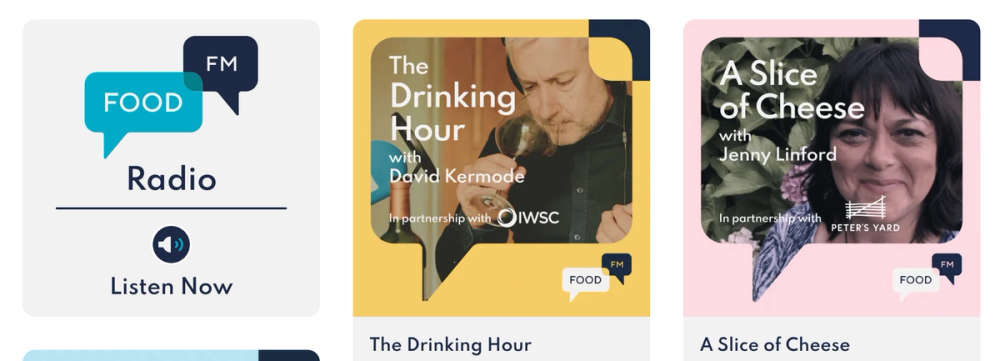
Kermode’s The Drinking Hour is part of a wide range of podcasts and shows covering food and drink as part of the new Food FM platform
I have been doing a monthly radio wine hour with BBC Radio Berkshire’s Bill Buckley for around four years now. More recently, I have also become a regular on ITV’s This Morning. It was a chance conversation with Christelle Guibert, while judging at the IWSC, that connected me with the founders of Food FM, Karen and Caroline, who were just planning their test programming to run at Christmas. We focused on how judging works for the first episode and featured a festive dozen of IWSC medal winners, which worked really well.
What is the Drinking Hour all about – who is it aimed at?
It’s an unpretentious conversation around drinks, aimed at consumers – anyone who enjoys their wines and spirits or no/low alternatives. Though it’s loosely an hour, there are no time limits, no word counts, it’s all very relaxed. It’s certainly not ‘educational’, but I hope the typical listener will come away having learnt something new.
How do you work with Food FM in deciding what should be in the podcast?
Food FM has a suite of complementary programming, covering drinks, cheese, cooking, food trends and global issues. I work closely with Food FM, but also the team at the IWSC and Club Oenologique to coordinate content ideas.
Can you describe an average podcast in terms of content and how you put it together?
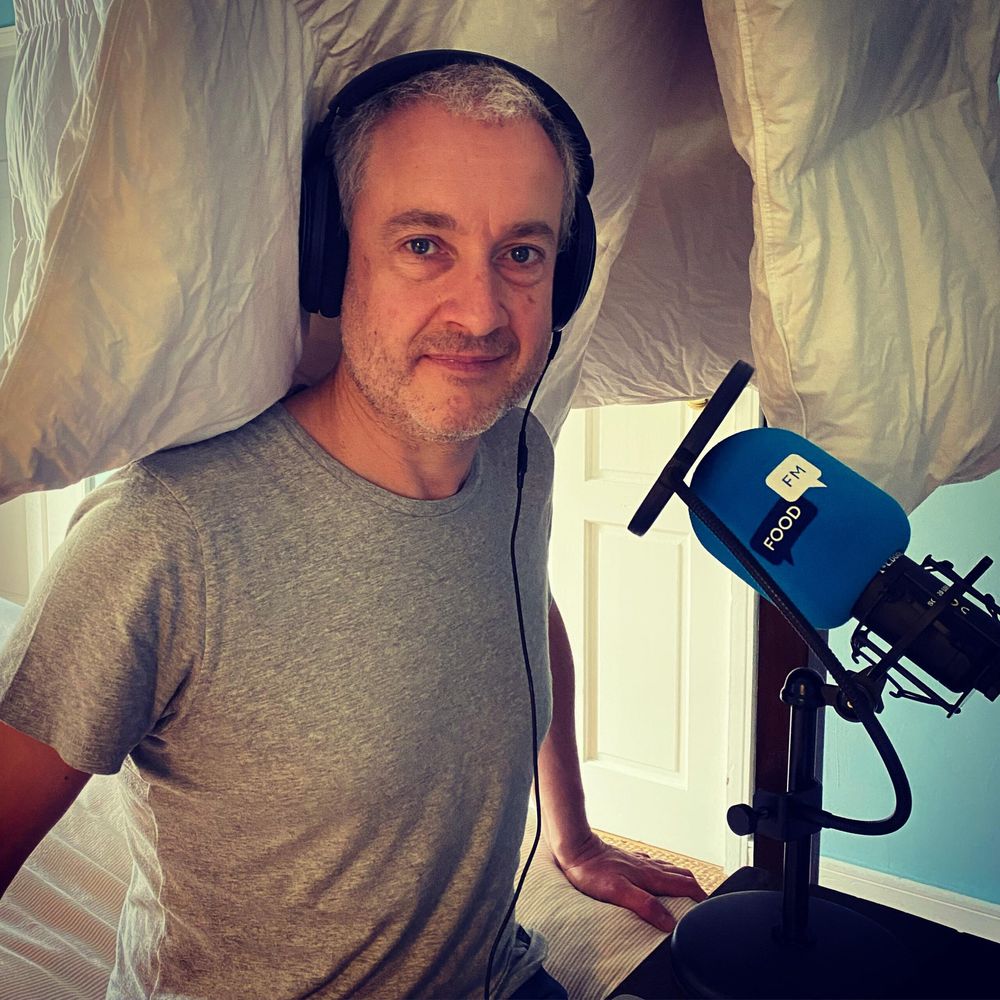
Ever the professsional: David Kermode has come up with a unique way of sound proofing his home to help with the recording of his podcast
There are no strict rules on how many items we feature, but it tends to be either two or three separate features, some with a single guest, others with multiple guests.
What is the tone of voice in terms of drinks knowledge?
The tone of voice is relaxed, unpretentious and hopefully a little irreverent. Those who know me well tell me that it sounds authentic too; I suspect that means I am talking quite a lot. I don’t think I’m loquacious, but others tend to disagree.
What attracts you to podcasting?
I have been working with podcasts since the technology arrived, with the iPod. We did a ‘breakfast takeaway’, a short news summary to download, which was a surprise hit. A lot of people assumed podcasts were a passing fad, the iPod has gone, replaced by the iPhone, but podcasts are thriving because they are just so versatile.
You can do whatever you want really, whether it’s niche or mainstream. It’s an intimate medium and, like listening to the radio, you can also do things at the same time as listening.
Are you looking for sponsors and partners to work with you on the programmes and how do they get involved?
Yes, absolutely. Then can get in touch with Karen Morris at Food FM, or they can contact the team at the IWSC.
Any guests you would love to have on?
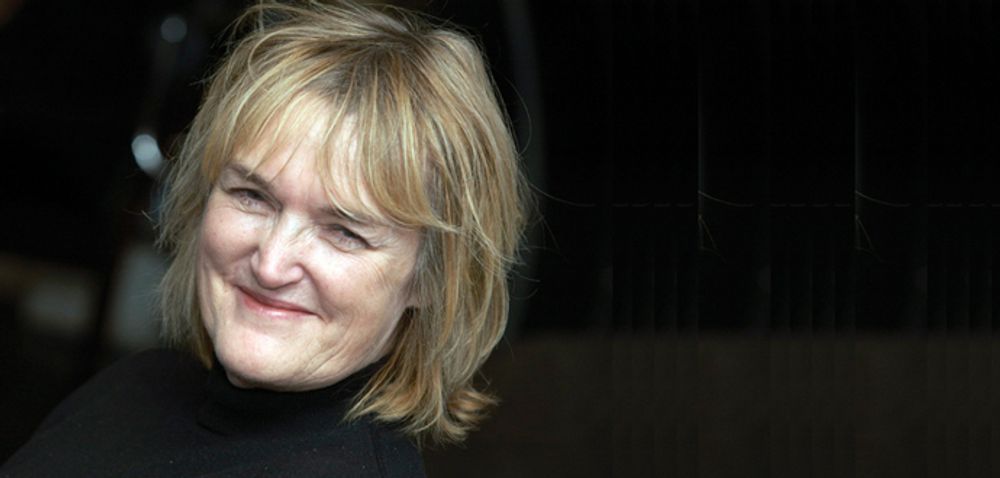
The Guardian’s wine critic Fiona Beckett has already featured on The Drinking Hour
I had a wish list when I started – basically people I admire and who have inspired me to do what I am now doing – and I am thrilled to say that I have ticked off quite a few names already – Jancis, Oz, Fiona Beckett – but I have a few more names I would love to get on.
Olly Smith, Victoria Moore and Jamie Goode are also on the wish list, as are Desmond Payne, Hugh Johnson, Christian Seely and Sacha Lichine. Beyond that, I am really keen to get out with my microphone once travel gets going again to do some interviews with wine and spirit makers in situ.
What are your hopes for the podcast and ambitions for how it can grow?
The listening figures are already really encouraging, but obviously I want it to grow and hopefully to be talked about as well.
Do you miss your national TV and radio days – if so what?
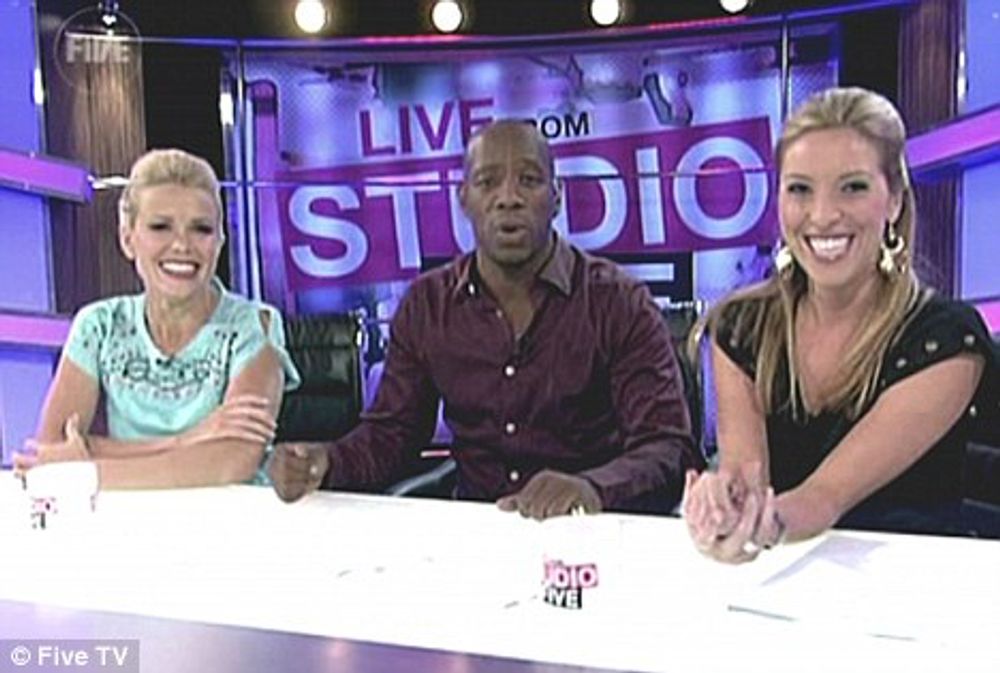
Trying to put on a daily live show with Ian Wright and Melinda Messenger was one of Kermdode’s more difficult TV assignments
I still shout at the TV. I’m afraid to say that it’s usually when I have seen a missed opportunity, a really ham fisted piece of production or some impenetrable language. I also get very cross if the top of the hour sequence on a breakfast show doesn’t happen exactly on time. I suppose what I miss most is the excitement of an unfolding story, or a good old-fashioned scoop. I also really miss working in a team, if I’m honest.
Who is the most professional or best news personality you have worked with?
I have worked with so many inspirational figures. I was on the studio floor running a live graphics operation for the BBC live election specials and observing David Dimbleby was akin to watching a masterclass in live presentation.
For incredible calm under pressure, nobody beats Natasha Kaplinsky. I still have nightmares about the technical crash that left us with no video content during a half hour live bulletin. She was fully aware of what was going on, as she had all the shouting in her earpiece, yet she actually appeared to become calmer as the crisis escalated. It’s an extraordinary skill.
What’s the programme you are most proud of?
I edited a BBC News Special for Concorde’s Final Flight, which was nominated for a BAFTA. It was an incredible live show, with so many component elements, and they all came together perfectly. There’s always an element of luck alongside everything else. (Click above to see part of the recording).
And your worst moment?
I was responsible for a live outside broadcast from Durham for the Armistice two minute silence one year, early in my career. I neglected to check that the organisers were keeping the correct time. They weren’t. So we went into our silence two minutes before the rest of the country, and came out of it as the country fell silent. I’m surprised I wasn’t sacked.
What don’t you miss at all?
The alarm going at 0350. The sense of permanent jet lag that early starts give you. Live television requires so much effort, so much work, so much time, yet it is gone in a flash. I don’t miss dealing with some of the crass efforts at political interference either. I like to think that we withstood those, but they could be personal and very unpleasant.
Why don’t you think wine has worked as well on radio or TV before – what do you think producers should work more on?
Wine has definitely had its moments on TV and radio I think, but there’s always the dilemma around on air tasting. If you do it, you can be accused of being exclusive, but if you don’t, you miss the chance to convey the pleasure. I personally think it’s good to do it, but you need to work really hard on communicating what makes it special.
When do you think it has worked best – any shows that stand out for you and why?
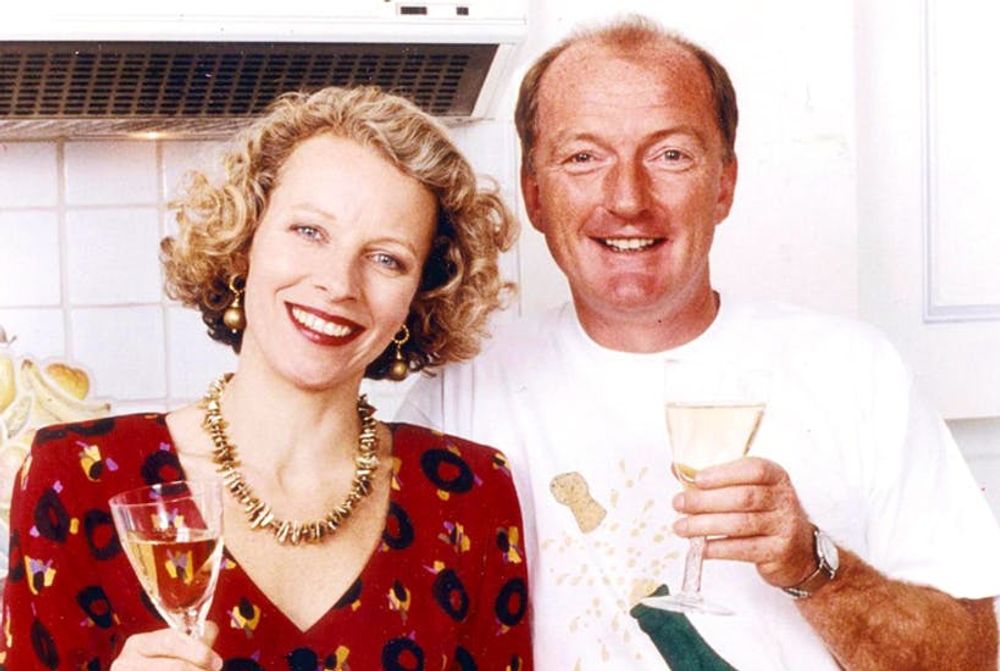
Few, if any, have been able to bring wine to life on TV as much as Oz Clarke and Jilly Goolden on BBC’s Food & Drink, but Kermode thinks The Wine Show on Amazon is now doing a “very good job”
It’s a long time ago, but I still think of Oz Clarke and Jilly Goolden on Food and Drink who were just so engaging. I also happen to think they have done a very good job with the Wine Show, most especially with the high standards of production. It deserves a bigger platform and greater acclaim.
Is The Drinking Hour the answer?
I hope so. It is early days, but we have had some lovely feedback already and I am happy we have the right tone of voice for it.
- The Buyer is pleased to be the trade media’s partner for David Kermode’s The Drinking Hour on Food FM. You can catch up on all the episodes here.
